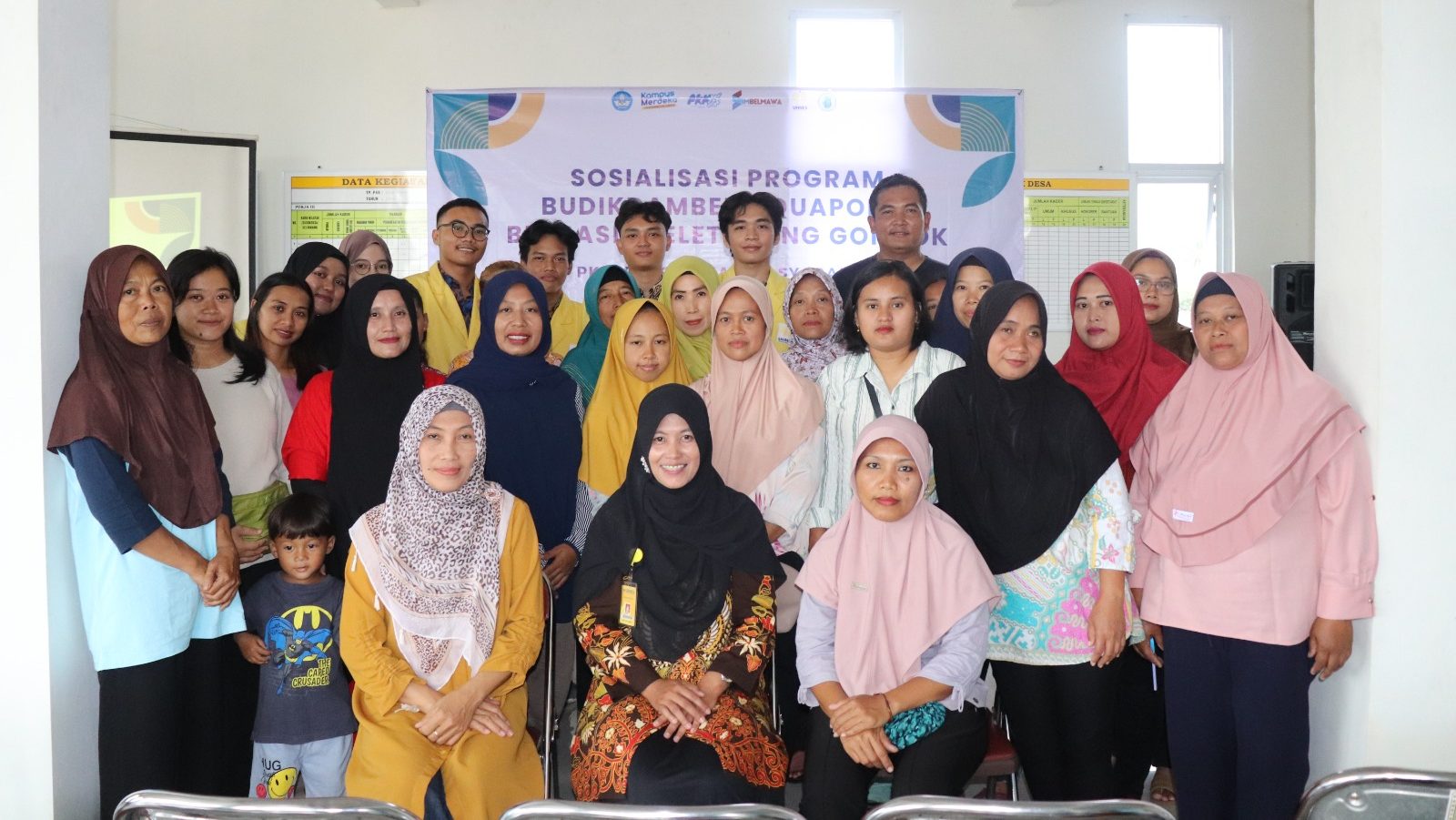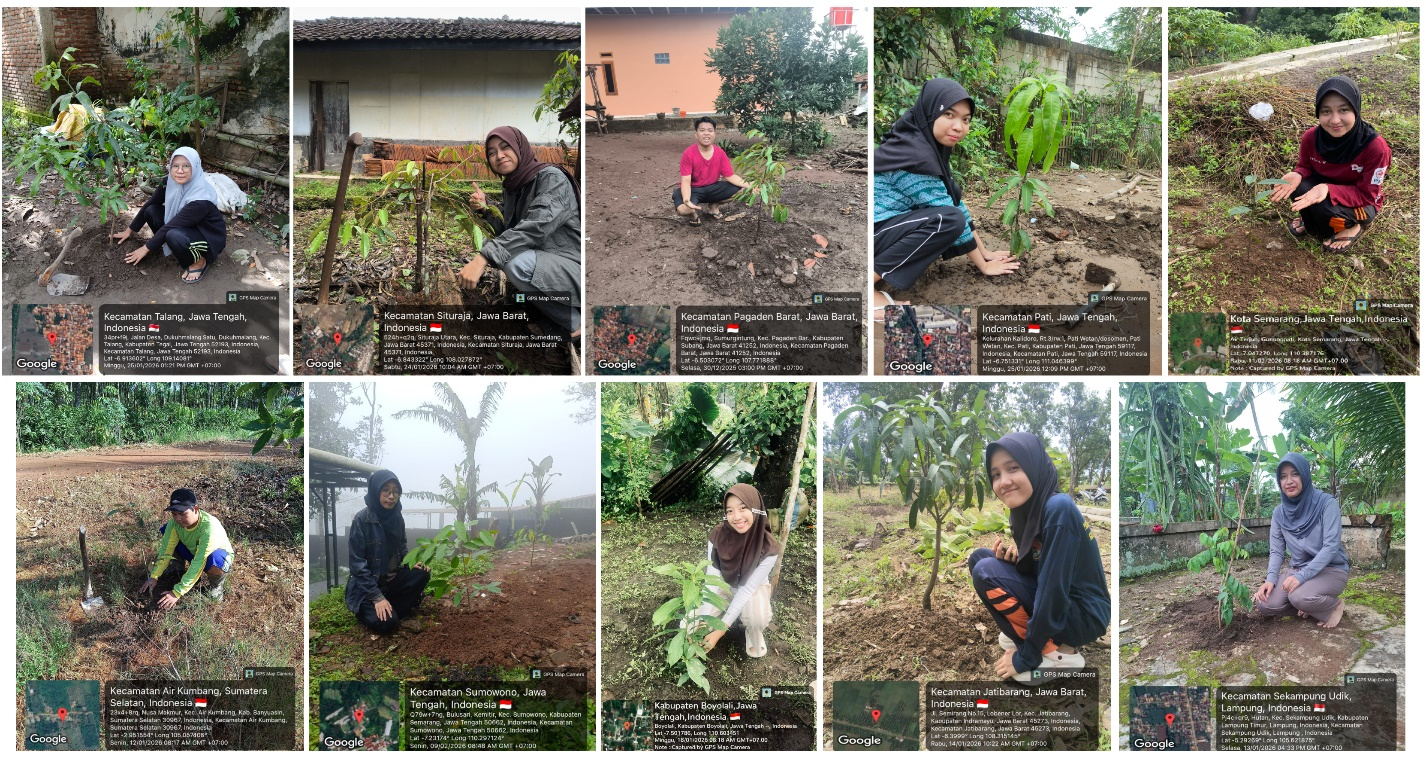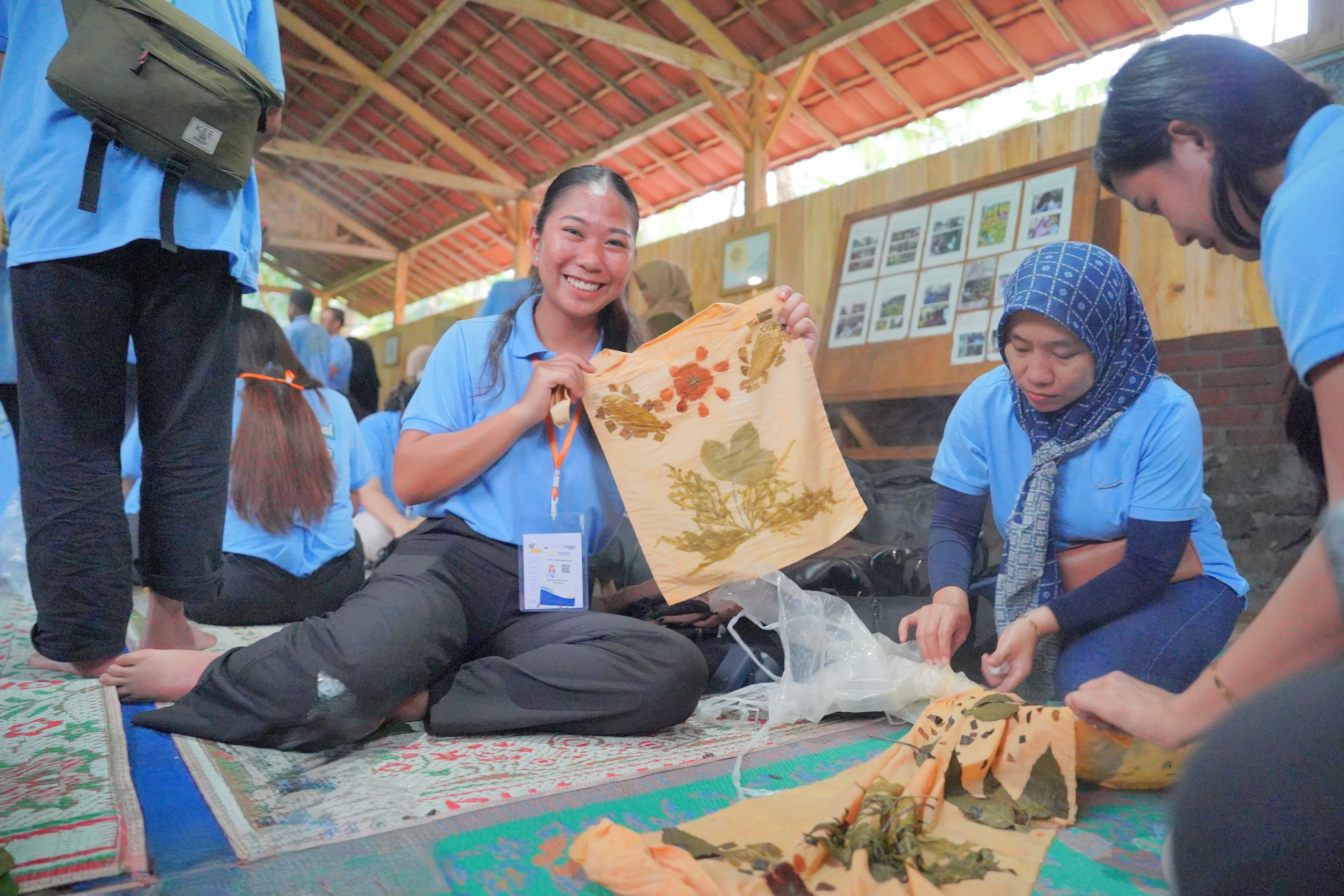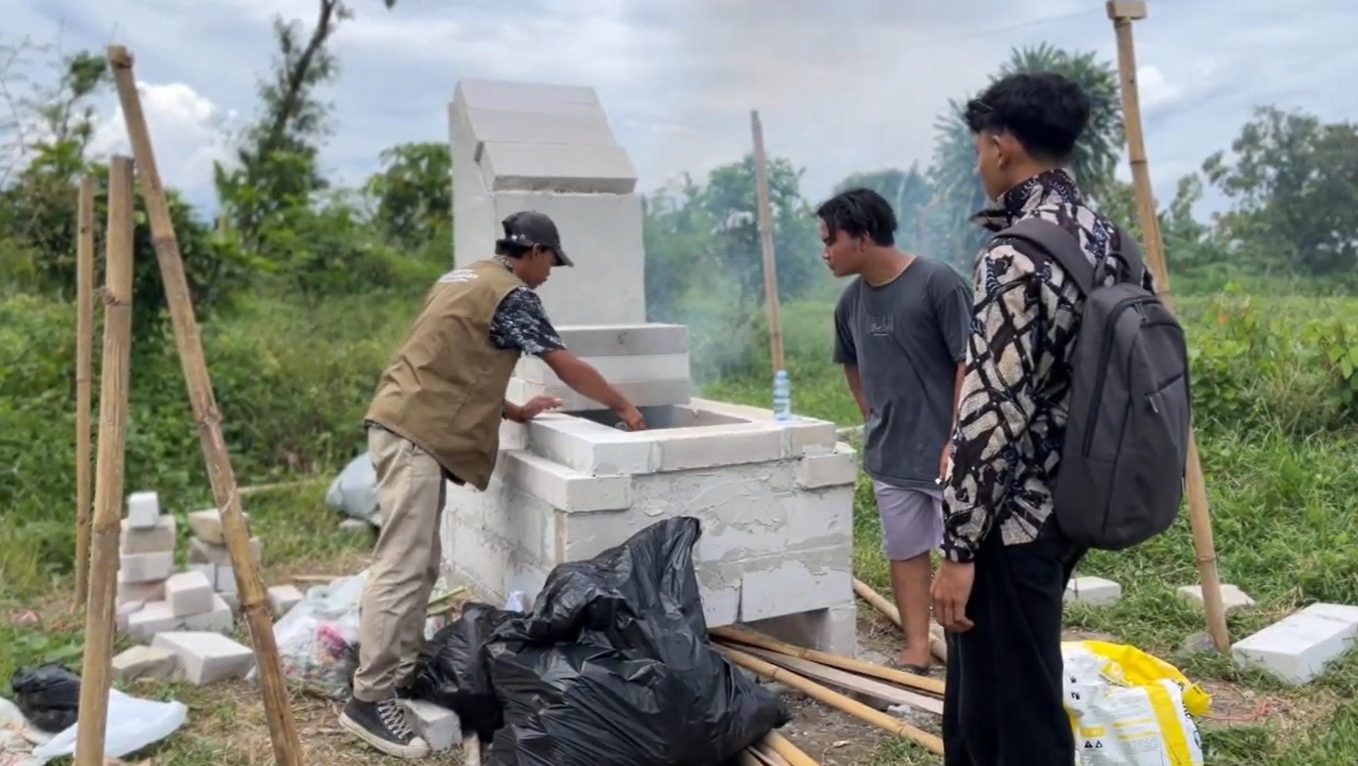Water hyacinth is a plant that is abundant in Rawa Pening Lake. However, the growth of water hyacinth, which is considered a weed, can disrupt the ecosystem in the lake if water hyacinth is not utilized properly. Departing from this problem, the Student Creativity Program Team for Community Service (PKM-PM) of Semarang State University (UNNES) created an innovation of aquaponic budikdamber based on water hyacinth pellets which was implemented in Bejalen Village, to increase food independence and conservation of the Rawa Pening Lake ecosystem.
The team, known as the Baraya Bejalen Team, has succeeded in mobilizing housewives receiving PKH in Bejalen Village located on the shores of Rawa Pening Lake to utilize water hyacinth as a raw material for making pellets that are rich in protein as an economic solution for the community.
By utilizing the abundant water hyacinth, the Bejalen Village community can now produce pellets at a low cost and environmentally friendly. In addition, the utilization of water hyacinth is also an important step in efforts to conserve Rawa Pening Lake.
In addition to making pellets, the Baraya Bejalen Team also introduced the aquaponic budikdamber (fish farming in buckets) method to the community. This method allows the cultivation of catfish and kale plants in one system, namely using buckets. This method is very suitable for application in limited land. In addition to water efficiency, increased production through effective nutrient cycles, and environmentally friendly solutions are also easy to implement.
The program supported by Semarang State University and the Ministry of Education, Culture, Research, and Technology has conducted socialization, training and making water hyacinth pellets, implementing aquaponic budikdamber, monitoring and evaluation.
In addition, they also provide partner guidebooks for the sustainability of the program and processing of cultivation results into nutritious food, as well as an overall evaluation at the end of the program. The series of activities took place successfully from May 23, 2024 to August 10, 2024.
The Baraya Bejalen Team consists of students spread across several study programs with members: Tedhy Pikrihaikal, Rizzky Anugrah, Aditya Hadi Prawira (Chemical Engineering Study Program), Irna Mufidatul Himmah, and Adila Unadi (Public Health Study Program).
They received guidance from Dr. Harianingsih, S.T., M.T.
The success of this program received appreciation from the community and the Bejalen Village government. One resident expressed a lot of new knowledge after participating in this program.
“I think this program is very creative for us, from not understanding anything to understanding how to make pellets from water hyacinth which might be considered a weed, but it turns out that it has good benefits for making water hyacinth pellets. Now we know how to make our own fish pellets and can cultivate fish and plant vegetables in buckets easily,” said one resident.
Through this program, the Baraya Bejalen Team has succeeded in utilizing water hyacinth as a valuable material and at the same time increasing the technological knowledge of the community, especially for PKH program recipients related to the manufacture of pellets and more efficient cultivation of catfish and kale through aquaponic budikdamber. It is hoped that the Bejalen Village community can continue this program independently, so that food independence, ecosystem preservation, and increased productivity are achieved in the future.




